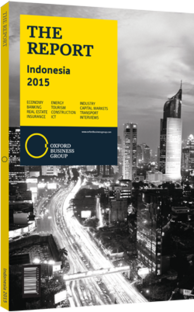Todung Mulya Lubis, Senior Partner, Lubis, Santosa & Maramis, on enhancing the country’s business environment

Please don’t panic. And don’t judge the government by slower economic growth, the weakening rupiah and continuing corruption. Of course, those are reasons to be cautious, but it does not mean Indonesia should be written off. After all, Indonesia is still the largest country in the ASEAN, the fourth-most-populous nation in the world and unbelievably rich in natural resources. It is only a matter of time until things get organised and economic conditions will be more conducive and legal certainty will also be guaranteed.
It is easier said than done. In the last six months the new government seems to have failed to coordinate its actions such that one ministry collides with another, sending the wrong signals to investors. The conflict between the police and anti-corruption agency may also make investors less confident in the government’s ability to remain committed to fighting corruption in order to ensure transparency and accountability. One may also argue that there have been tensions between the political elites, not to mention the president and vice-president. Investors seem to be confused seeing different policy from various ministries, including between president and vice-president.
I must beg you to look at Indonesia with new eyes and see the government as a fresh entity run by people who, as instructed by president in his inaugural speech, are here to work, to work and to work. In implementing the president’s instruction the ministries have been working hard up to the point where they unconsciously neglect coordination. They stumble here and there. They work and make mistakes. At the same time they have also learnt that things must get more coordinated, and interestingly our energetic president has begun to realise that high expectations of the people ought to be managed. In a time where national economic growth depends not only on internal efforts, one has to be aware that external factors must be taken into account. Every country has been inevitably affected by a series of economic crisis in many parts of the world. Indonesia is not an exception. But I have many reasons to be optimistic. The chairman of the Investment Coordinating Board is in the process of revising the investment negative list. This is urgent because closing more doors to foreign investors must be considered antithetical to the policy of opening up the country, and opening up is a sine qua non if Indonesia wants to be competitive. The minister of industry announced that investors in several categories will be entitled to a tax allowance, and the tax allowance will be more significant if the investment is located in frontier areas like the eastern part of the country. If the investment employs local people, additional benefits will be given. More jobs would help Indonesia achieve security and stability. No one would disagree that investment needs security and stability, and in this respect reducing unemployment is high on the agenda.
President Joko Widodo has said that building up infrastructure is his number-one priority. If one scrutinises the state budget, one may find that allocated budget for infrastructure has increased substantially. Toll roads, inter-city trains, airports, seaports and power plants are in the pipeline. An infrastructure summit has been held, attended by domestic and foreign investors. It will take time but it will strengthen the economic fundamentals. Once we have better infrastructure, it is only a matter of time before capitalisation increases. Indonesia will be poised for economic growth.
Legal certainty, transparency and accountability are a must. Frankly, this will require more energy and time, not to mention strong political will. Disrespect toward sanctity of contract and an unwillingness to enforce international arbitration awards have been bothering the investment community. Ignorance and corruption within judiciary are also a matter of concern. But this is not a reason to be discouraged. The international community must come forward to offer their assistance to the government to help reform the judiciary system. The government does have goodwill. It is not going to be easy, but the government is working hard to meet demands and create a better investment climate.
You have reached the limit of premium articles you can view for free.
Choose from the options below to purchase print or digital editions of our Reports. You can also purchase a website subscription giving you unlimited access to all of our Reports online for 12 months.
If you have already purchased this Report or have a website subscription, please login to continue.

